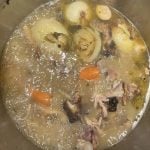Q: My preschool aged children often get nosebleeds. Although I always manage to control the bleeding by squeezing their noses for a while, I wonder if I am doing the correct thing because I have heard so many different ways of treating a nosebleed.
A: Children often get a mild nosebleed when they accidentally hit their noses or have a cold. These are also more common in cold weather, due to drying of the
nasal membranes. Allergies may also be responsible.
It sounds as though you have been doing the correct thing. I was at a meeting last week when the guest speaker developed a nosebleed just before his speech. Of course, I had to do my “I am a doctor, can I help?” thing, and a couple of nurses also jumped up to help. We all suggested that he pinch the soft parts of his nose just below the cartilage between the fingers and thumb. Pressing firmly toward the face compresses the nose against the facial bones. He was also advised to keep sitting up, so that the head is higher than the heart. Blood has a harder time flowing against gravity.
Read Also

Starting a small business comes with legal considerations
This article sets out some of the legal considerations to start a business to sell home-grown product, such as vegetables, herbs, fruit or honey.
If the blood is running down the back of the throat, the head should be tipped forward slightly, and after
10 minutes it forms a clot, which should prevent further bleeding.
Often only five minutes of nose pinching is required, so check after that length of time to see if the bleeding has stopped.
You wouldn’t believe the number of different suggestions that came from the
audience, most of them incorrect. One of these was “my doctor says you should lie flat on your back when you have a nosebleed.” Wrong.
The use of ice packs is also controversial. Some people felt that you should put an ice pack or pack of frozen vegetables on the back of the neck. Apart from not feeling pleasant, this does not do anything to stop the blood flow. Unless the area is extremely cold, the application of ice packs will actually dilate the blood vessels and increase the flow of blood to the area. If ice packs are to be used, then they should be applied directly to the nose and cheeks, but I think it is better not to use them at all. Even when I worked in the hospital emergency department, packing the nose was seldom required.
When should you go to the emergency
department? If the bleeding cannot be stopped, is too rapid or if a large amount of blood has been lost. If a patient is weak or faint, he may have lost a large amount of blood. Blood tests may need to be ordered to see if the person has a bleeding or clotting disorder, or something more serious such as leukemia. In an older individual, high blood pressure may also lead to
nosebleeds.
Clare Rowson is a medical doctor with a practice near Belleville, Ont. Her columns are intended for general information only. Individuals are encouraged to also seek the advice of their own doctor regarding medical questions and treatments.














